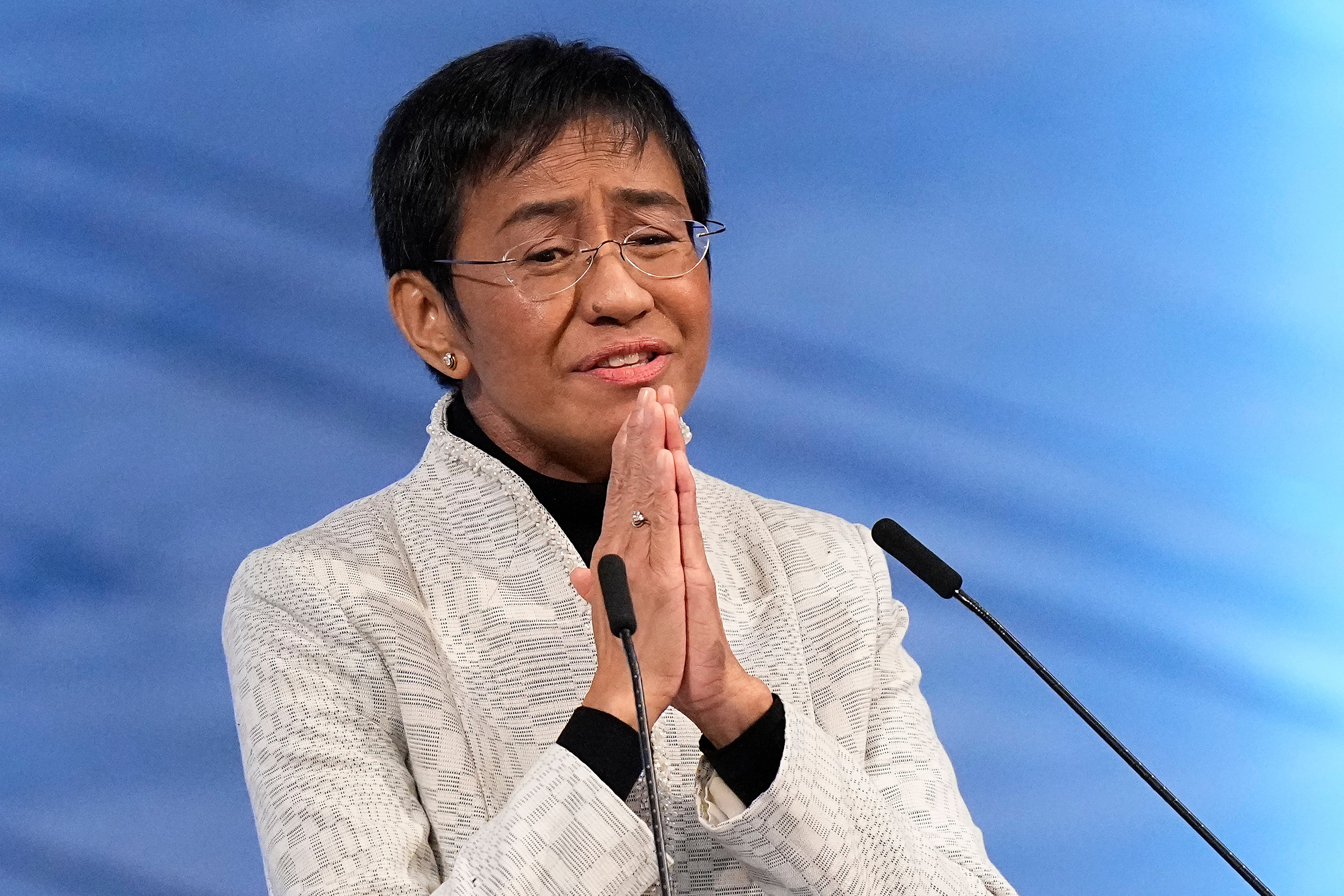Nobel winner Maria Ressa, news outlet cleared of tax evasion
A Philippine tax court has cleared Nobel Peace Prize winner Maria Ressa and her online news company of tax evasion charges she said were part of a slew of legal cases used by former President Rodrigo Duterte to muzzle critical reporting

Your support helps us to tell the story
From reproductive rights to climate change to Big Tech, The Independent is on the ground when the story is developing. Whether it's investigating the financials of Elon Musk's pro-Trump PAC or producing our latest documentary, 'The A Word', which shines a light on the American women fighting for reproductive rights, we know how important it is to parse out the facts from the messaging.
At such a critical moment in US history, we need reporters on the ground. Your donation allows us to keep sending journalists to speak to both sides of the story.
The Independent is trusted by Americans across the entire political spectrum. And unlike many other quality news outlets, we choose not to lock Americans out of our reporting and analysis with paywalls. We believe quality journalism should be available to everyone, paid for by those who can afford it.
Your support makes all the difference.A Philippine tax court on Wednesday cleared Nobel Peace Prize winner Maria Ressa and her online news company of tax evasion charges she said were part of a slew of legal cases used by former President Rodrigo Duterte to muzzle critical reporting.
The Court of Tax Appeals ruled that prosecutors failed to prove “beyond reasonable doubt” that Ressa and Rappler Holdings Corp. evaded tax payments in four instances after raising capital through partnerships with two foreign investors. “The acquittal of the accused is based on the findings of the court...that respondents did not commit the crime charge,” the court said in its decision.
Rappler welcomed the court decision as “the triumph of facts over politics.”
“We thank the court for this just decision and for recognizing that the fraudulent, false, and flimsy charges made by the Bureau of Internal Revenue do not have any basis in fact,” Rappler said in a statement. “An adverse decision would have had far-reaching repercussions on both the press and the capital markets.”
“Today, facts win, truth wins, justice wins,” Rappler quoted Ressa as saying after the verdict was announced.
Ressa won the Nobel with Russian journalist Dmitry Muratov in 2021 for fighting for the survival of their news organizations, defying government efforts to shut them. The two were honored for “their efforts to safeguard freedom of expression, which is a precondition for democracy and lasting peace.”
The tax charges against Ressa and Rappler stemmed from a separate charge by the Securities and Exchange Commission, Manila’s corporate watchdog, in 2018 that the news website violated a constitutional provision that prohibits foreign ownership and control of Philippine media companies when it received funds from foreign investors Omidyar Network and North Base Media through financial papers called Philippine Depositary Receipts.
The Philippine commission then ordered the closure of Rappler on the basis of the allegation, which Rappler denied and has appealed saying it was a news company totally owned and controlled by Filipinos.
The tax court ruled that the Philippine Depositary Receipts issued by Rappler were non-taxable, removing the basis of the tax evasion charges filed by justice department prosecutors under Duterte.
Ressa and Rappler face three more legal cases, a separate tax case filed by prosecutors in another court, her Supreme Court appeal on an online libel conviction, and Rappler’s appeal against the closure order issued by the Securities and Exchange Commission.
Rappler, founded in 2012, was one of several Philippine and international news agencies that critically reported on Duterte’s brutal crackdown on illegal drugs that left thousands of mostly petty drug suspects dead and his handling of the coronavirus outbreaks, including prolonged police-enforced lockdowns, that deepened poverty, caused one of the country’s worst recessions and sparked corruption allegations in government medical purchases.
The massive drug killings sparked an investigation by the International Criminal Court as a possible crime against humanity.
Duterte ended his often-turbulent six-year term last year and was succeeded by Ferdinand Marcos Jr., the son of a dictator, who was overthrown in an army-backed “people power” uprising in 1986 following an era marked by widespread human rights violations and plunder.